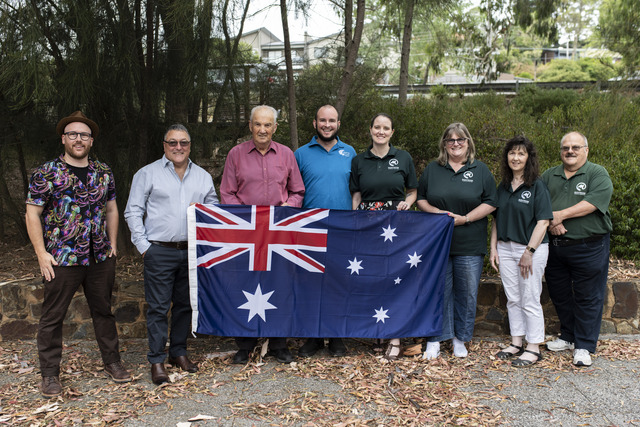Question: If you knew that no matter what you write, people will WANT to read it – how would you present your life?
Answer: As truthfully as possible.
Which is exactly what Sam Neill does in his wonderful and often hilarious memoir Did I Ever Tell You This?
Neill declares “I am writing for myself” because he is possibly dying. “Suddenly, for the first time in my life, I have time to burn, and time to think. And writing, jotting thoughts and memories down, is a salve. It gets my mind off things.”
And what fascinating thoughts and memories these are! As Neill reviews his life, first as a seven-year-old Irish migrant to New Zealand and then as an internationally acclaimed actor and finally as a farmer and winemaker, we see an honest, humble and happy-go-lucky guy.
Neill’s writing is genuine and warm, full of joy and a sense of adventure that keeps you going through the 400 pages of monologue. There is often a child-like innocence about him. Yet, many of his stories about family, friendship and film are graceful and tender, full of heartfelt emotions and empathy.
Neill is as self-deprecating as any Aussie can be, which is why Australia adores him. Another feature of his “lively, lovely book” (as described by Meryl Streep) is its frequent use of “poor bastard(s)” as an endearing term. There is neither pretence nor arrogance here.
It is clear that the man writes like he talks. Indeed, when Neill expresses his gratitude to Text Publishing for “all the punctuation”, you know he is not joking.
What stands out in Did I Ever Tell You This? is Neill’s pride as a New Zealander, his devotion to all forms of art – from music and literature to architecture, food and wine – and his passion for life, especially the environment and his animals. Despite his great sense of humour, being true to himself is no laughing matter.
Throughout Neill’s book, there is not a bad word about anyone that he has ever worked for, with and/or around. He tells many beautiful stories about the stars and celebrities around the world – some are solemn, many others are funny – but it is his in-depth observations of those “ordinary” people, creatures and phenomenons that catch your eye. It is at these times that his writing is breathtaking.
This reviewer particularly enjoys the chapter “I’m Not Ready to Leave You Yet” near the end of the book. But here is a valuable lesson gifted to us by Neill, which he learned from another renowned storyteller.
“I love the way [Peter O’Toole] relished every word… Every line is a gift, every word should be given its appropriate weight. It’s language. It’s the English language. It is rich, it is powerful, it is yours. All you mumble-bums who throw away lines – you’ve worked to the point where people are giving you lines, and now you want to throw them away? Take up plumbing, or mow lawns. Please.”
















